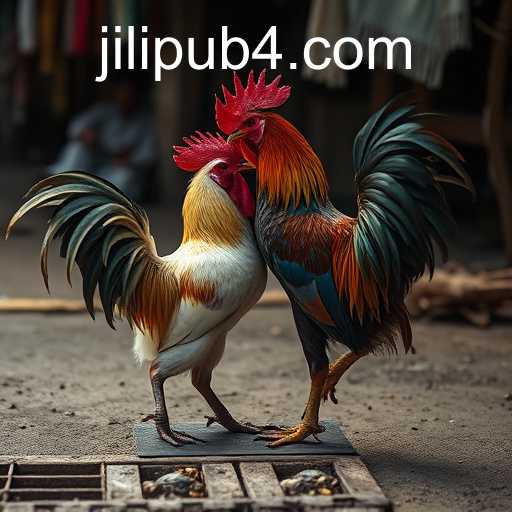The Intriguing World of Cockfighting: Unraveling the Mystique Behind Jilipub
Cockfighting, a controversial yet storied tradition present in various cultures across the globe, captivates audiences with its intense contests between specially bred gamecocks. Known by different names in corresponding regions, this blood sport has gathered both staunch supporters and fervent detractors over the years. One intriguing aspect of this practice is the term "jilipub," which carries cultural significance in specific locales where cockfighting thrives.
The Historical Roots of Cockfighting
jiligoThe origins of cockfighting trace back to antiquity, with evidence suggesting its existence in various civilizations such as the ancient Greeks, Romans, and Persians. This sport, driven by the natural aggressiveness of male chickens, has been historically associated with gambling, cultural festivities, and even spiritual significance. The practice gradually spread across the globe through trade routes and colonial influences, embedding itself into the socio-cultural fabric of countries in Asia, Latin America, and beyond.100jili
The Cultural Significance of Jilipub
jilifortunegemsWithin the realm of cockfighting, the term "jilipub" surfaces in discussions particularly in Southeast Asian contexts where the practice is entrenched as both a pastime and a deep-rooted tradition. "Jilipub" is often associated with specific styles or methods of cockfighting or may even relate to particular regional tournaments known for attracting top breeders and fighters. The term signifies an exclusive, almost legendary aspect of these events, evoking images of skill, tradition, and fierce competition.
jili7The Dynamics of a Cockfight
A typical cockfight unfolds in a small, circular arena where two roosters, bred and trained for aggression and combat, face off. Spectators gather to witness these clashes, often placing significant wagers on the outcome. The birds are equipped with sharp blades or gaffs attached to their legs, enhancing their natural weaponry, and the fight continues until one bird is unable to continue or submits.
The Role of Breeding and Training
100jiliThe preparation for a cockfight extends beyond the arena stages. Breeders meticulously select gamecocks based on their physical attributes, temperaments, and genealogies, aiming to produce birds that exhibit strength, agility, and fierce fighting instincts. The training regimen of a fighting cock, akin to that of a top athlete, encompasses controlled diets, exercise, and sparring sessions, ensuring the bird can withstand the physical demands and psychological pressures of a fight.
Ethical Concerns and Legislation
The sport of cockfighting, however, garners significant ethical scrutiny due to its inherent cruelty and exploitation of animals. Advocacy groups worldwide insist that cockfighting should be banned, emphasizing the moral imperative to safeguard animal welfare. The legal status of cockfighting varies; it remains prohibited in many countries while being tolerated or legally sanctioned in others under traditional exemptions.
Opponents argue that the violent nature of the sport desensitizes spectators and perpetuates a culture of violence. They also raise concerns regarding the conditions in which the birds are kept, often raising issues related to animal rights and humane treatment.
Jilipub: Embedded in the Debate
The connotation around "jilipub" frequently echoes on both sides of the cockfighting debate. For enthusiasts, it represents a celebrated event marked by heritage and the esteemed repute of competing gamecocks and seasoned breeders. Conversely, for critics, it symbolizes a battleground of ethical clash between cultural preservation and modern animal welfare standards.
Conclusion
While the controversy surrounding cockfighting and its associated terms like "jilipub" continues to whirl globally, the dialogue it inspires is pivotal. It transcends the legality and focus on preserving tradition while advocating for ethical evolution and respect for animals. As societies reevaluate the role and legitimacy of such sports, the future of cockfighting rests on finding a balance between cultural heritage and evolving ethical standards.








